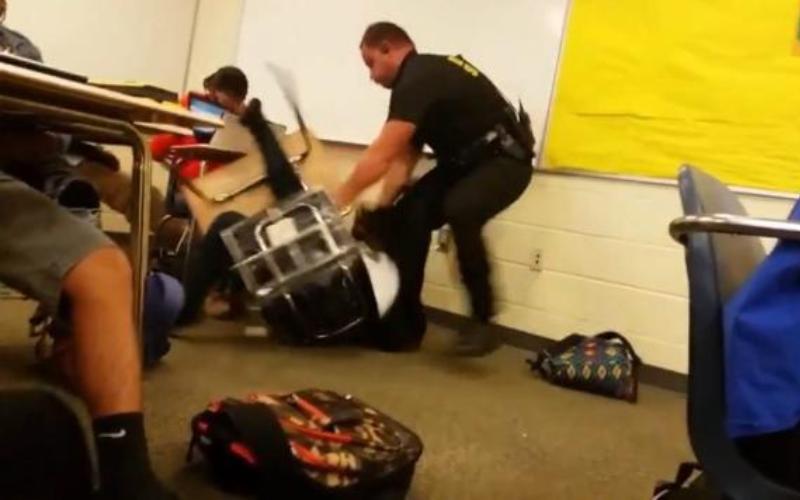John Thompson: Do Not Treat Difficult Students Like Criminals

John Thompson, historian and teacher, explains that there are good alternatives to corporal punishment in school. Student discipline problems are rarely appropriately addressed by treating students with police tactics, as if they were criminals.Thompson writes:
I would rather jump into a gang fight than weigh in on the details of the recent violence inflicted by school police upon students in numerous locations, including an Oklahoma City school where I once taught. The big issue is clear. We can't just watch a teen beaten, whether by his or her peers or the authorities. But, jumping into the political fray on school discipline policy is risky (at least in terms of professional relationships.) Obviously, we must tackle the school to prison pipeline and the tragic criminalization of student misbehavior. Getting involved in a discussion in terms of solutions, however, is politically dangerous.
So, I'll start on safe ground and the sound insights of the New York Times's Richard Perez-Pena, Christine Hauser, and Sheryl Gay Stolerberg. In "Rough Arrest Puts Spotlight on Officers in Schools," they discuss the dilemmas faced by police who are being increasingly sent into schools to enforce their codes of conduct, as opposed to significant violations of laws. In too many cases, the police receive little or no training on how to handle students who are violating school rules.
Perez-Pena, Hauser, and Stolerberg explain that in the South Carolina case captured by cell phone video a girl defied a teacher's instruction to stop using her phone in class. She then refused to obey the orders by the teacher and an administrator to leave the classroom. They cite an expert on such situations, Mo Canady, who says that a policeman or sheriff in such a situation must first ask, "Was it a criminal offense going on that got him involved, or was it the heart of a school discipline matter that could be handled by school administrators?" By the time the officer arrives, "there may have been no easy solution to a student who is disruptive but nonviolent, and refuses to budge."
Canady’s advice echoes the professional development advice that teachers are provided, "to first 'remove the audience.'" After asking the John Thompson: Do Not Treat Difficult Students Like Criminals | Diane Ravitch's blog - Linkis.com:
